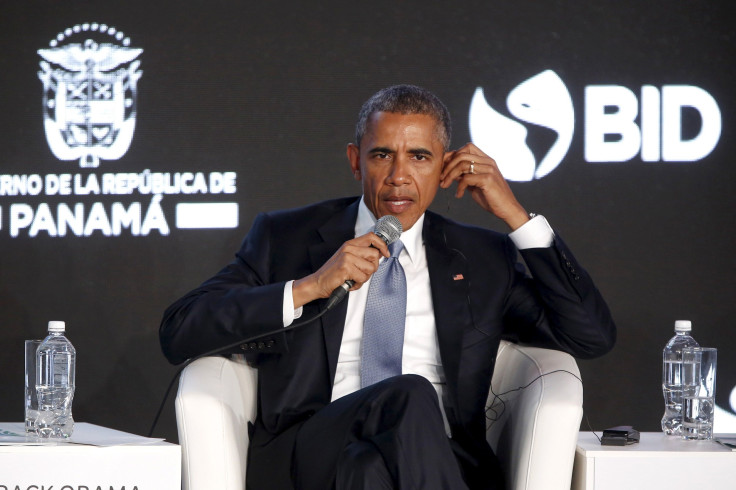
U.S. President Barack Obama had to thread a needle today at the 7th Summit of the Americas in Panama as he discussed the future of his country’s relationship with Cuba. Yesterday, Cuban-Americans in Panama City protested against Obama’s recent warmed relations with the communist regime. Many Cuban exiles believe that Cuba is not doing enough to stop human rights abuses. On the other side, allies of Cuba denounced Obama for not going far enough, for example by ending America’s trade embargo. Today, Bolivian President Evo Morales insinuated that criticisms of Cuban (and Venezuelan) human rights abuses were untrue, as well as hypocritical. He referenced recent police shootings in the U.S.
“Obama, what can you say about human rights when every day African-Americans are shot and killed,” said Morales, speaking at an alternative “Summit of the People,” also held in Panama City this week. He added that he believed the U.S. was plotting to overthrow the Venezuelan government. Yesterday, supporters of the People’s Summit marched against imperialism, burning American flags and dressing up as Guantanamo detainees.
At today’s civil society meeting, which included members of a Cuban delegation, Obama walked a fine line. Wander too close to Cuba, and he’d anger an audience at home. Step too far away, and he’d lose the goodwill earned by recent overtures that ultimately allowed Cuba to attend the Summit. He opened his remarks by recounting a recent 50th anniversary of the Selma civil rights march, saying that the “only reason” he could be President “is because those ordinary people” endured hardship on his behalf.
“It’s not to say that my country is perfect -- we are not,” Obama said. “And that’s the point. We always have to have citizens who are willing to question and push our government, and identify injustice. We have to wrestle with our own challenges -- from issues of race to policing to inequality. But what makes me most proud about the extraordinary example of the United States is not that we’re perfect, but that we struggle with it, and we have this open space [in society].”

The U.S. has been trying to pry open that space for years. The U.S. State Department and USAID sponsor various “democracy-strengthening” campaigns aimed at empowering -- the Cuban government might say influencing -- Cubans to demand economic and social reform. These projects range from the rhetorical, such as Radio Martí’s anti-communist programming, to material support to dissidents in the form of journalistic equipment and training. Yet it’s far from blowing up cigars.
“As the United States begins a new chapter in our relationship with Cuba, we hope it will create an environment that improves the lives of the Cuban people -– not because it’s imposed by us, the United States, but through the talent and ingenuity and aspirations, and the conversation among Cubans from all walks of life so they can decide what the best course is for their prosperity,” Obama said [....] The days in which our agenda in this hemisphere so often presumed that the United States could meddle with impunity, those days are past.”
According to the official White House transcript, each mention of relations with Cuba and a rolling back on interventionism were met with applause by the audience.
“[We] have to be very clear that when we speak out on behalf of somebody who’s been imprisoned for no other reason than because they spoke truth to power, when we are helping an organization that is trying to empower a minority group inside a country to get more access to resources, we’re not doing that because it serves our own interests; we’re doing it because we think it’s the right thing to do,” Obama said.
President Obama's full speech can be found here.
© 2025 Latin Times. All rights reserved. Do not reproduce without permission.




